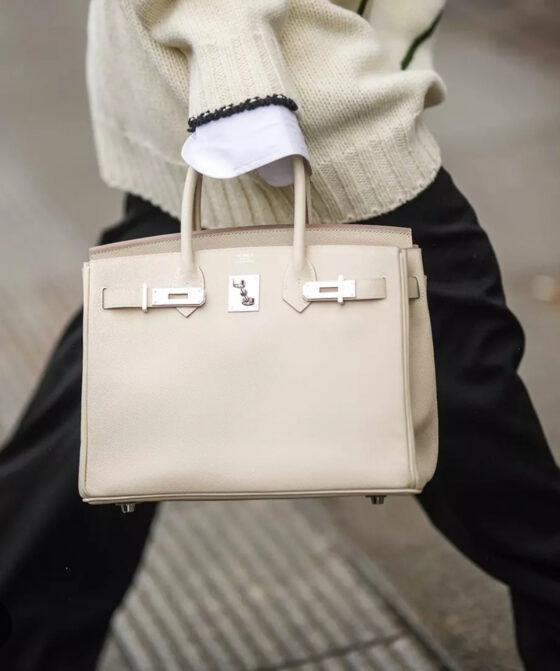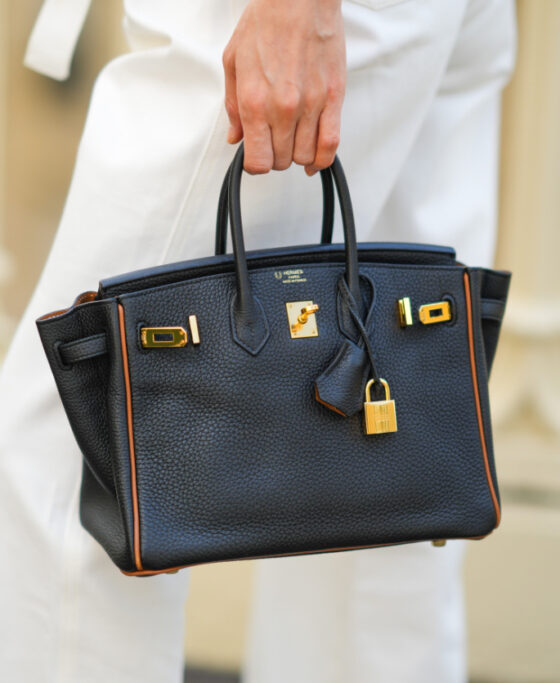

ICYMI, French luxury brand Hermès is being sued by two unhappy shoppers in California for its alleged unfair business practices relating to the sale of the world-famous Birkin bag. (Note: the definition of the term “Birkin” in the pleadings includes the brand’s equally famous Kelly bags).
I’m a lawyer (formerly barred in that jurisdiction no less), but this is in no way a legal analysis of the merits of that class action suit. I’m more interested in the underlying issues in the dispute, and what it tells us about today’s luxury consumer and the luxury market in general. Read on.
The Birkin
Hermès is irrefutably one of the most prestigious brands out there, and its Birkin bag is indeed the “icon of luxury” the plaintiffs refer to in their pleadings. Inventory is famously scarce both as a result of high demand and, presumably, limited production. Although the brand does not disclose how many bags are actually produced each year, it’s safe to assume that this under-production policy is an intentional marketing strategy. It drives up the desirability of the bag and is, in the age of social media, brilliant marketing. The quest for and envy inducing unboxing of a Birkin is among the most viewed content on channels like Instagram and TikTok. For Hermès, that content is free advertisement.
The scarcity of the Birkin also, in theory, justifies the bag’s sobering price tag. It starts at around $10,000 and goes up to $30,000 or more for versions in exotic leathers. As if coming up with that kind of cash isn’t a big enough hoop to jump through, the bags are not sold on the brand’s website. That means that the only way to purchase one is in a store. An appointment with a sales associate (“SA”) is required, and these are famously hard to come by. If you do manage to get an appointment, the SA will only offer you options from the store’s current inventory.
Spoiler alert: the most popular styles like the Birkin 25 in black Togo leather with gold hardware will probably never be in stock.
The Claims
Tina Cavalleri and Mark Glinoga (the “Plaintiffs”) claim to have been injured by Hermès’ unfair business practices relating to the sale of Birkins. The brand’s policy, according to Plaintiffs, is basically a pay to play system pursuant to which only clients with a significant purchase history are offered a Birkin.
Their alleged injury is two-fold. First, they claim to have been “coerced” by their SAs to spend tens of thousands of dollars on non-Birkin “tied” items in hopes of being given the opportunity to purchase the “tying item”; i.e. the Birkin. Second, they apparently were never offered the bag, despite their repeated requests and, as described above, lavish spends.
They are relying on federal anti-trust law and the California Business Code to bring the action and seek compensatory (i.e. monetary damages) and injunctive relief (i.e. an order from a Court requiring a party to do or stop doing something).
The Underlying Issues
Gatekeeping
It’s fair to say that gatekeeping of highly coveted items is a common practice among top luxury brands. The Wall Street Journal recently reported that, “in 2021, Chanel began limiting the number of its ‘Timeless Classic’ quilted bags U.S. customers could buy [to] two annually, a move a Chanel spokeswoman said were ‘appropriate measures’ for highly sought after items.” Similarly, online fashion commentators have pointed to the sudden disappearance of the highly coveted Margaux bags by quiet luxury brand The Row from third party websites. They are currently available only on the brand’s own website.
These commercial practices may be frustrating for consumers with money who are used to getting what they want, when they want. But does that make those practices “unlawful,” and should a court intervene to satisfy their desires?
Rewarding Brand Loyalty
A recent article in WWD on the different types of aspirational luxury consumers examined purchasing behavior from a brand’s perspective. The study conducted by McKinsey & Associates found that “brand loyalty is actually not particularly strong for anybody – except for the timeless chic segment.” The “timeless chic” segment is one that, unlike the “status seekers” or “socialite spenders,” returns to the same brands for apparel and accessories. According to the study, they make up “only 6 percent of the global community of aspirational luxury consumers.”
From a brand’s perspective, these are the ones to watch in terms of assuring the longevity of its value proposition. Therefore, is it wrong for players in the highly competitive luxury sector like Hermès to reward customers who have shown their loyalty by offering first dibs on coveted items like the Birkin? Or is it instead a viable commercial strategy, since capturing new customers is easy, but retaining them is not?
The Intrinsic Value
A Birkin is much more than a finely crafted leather handbag. It is, according to fashion and financial experts alike, a definitive status symbol. A Birkin bestows an air of elitism and superiority on its owner, regardless of the actual balance in his or her bank account. That is the Birkin’s intrinsic value, and why consumers like the Plaintiffs go to such lengths to acquire one. They want to own an object that suggests to those in the know that they are rich, famous, important, and well-connected. How else would they get one?
Parting Thoughts
If, as Plaintiffs ask the court to do, Hermès were to all of a sudden make the Birkin readily available, it would eventually lose its intrinsic value and, inevitably, its cache. Would they still want the bag if everyone could get one? Is the democratization of the luxury market their real goal, or do they just want their darn Birkins?
Ironically, I was having lunch recently with one of my very affluent and impossibly chic Parisian friends who sported Birkins in the 90s – back when only people with her budget and taste level did it. I asked for her opinion of a vintage Hermès bag I had my eye on. “Pfff!” she responded – a quintessentially French expression of contempt – “Real Parisian women don’t wear those bags any more. You see them everywhere nowadays!” Apparently, hers are banished to “somewhere in storage.”
Here ye, status seekers, socialite spenders, influencers, and litigious luxury consumers! The timeless chic have issued their ruling.


This was such an awesome and insightful read. Thank you
I’m glad you enjoyed it, and I really appreciate you taking the time to leave me a comment. Have a great day!